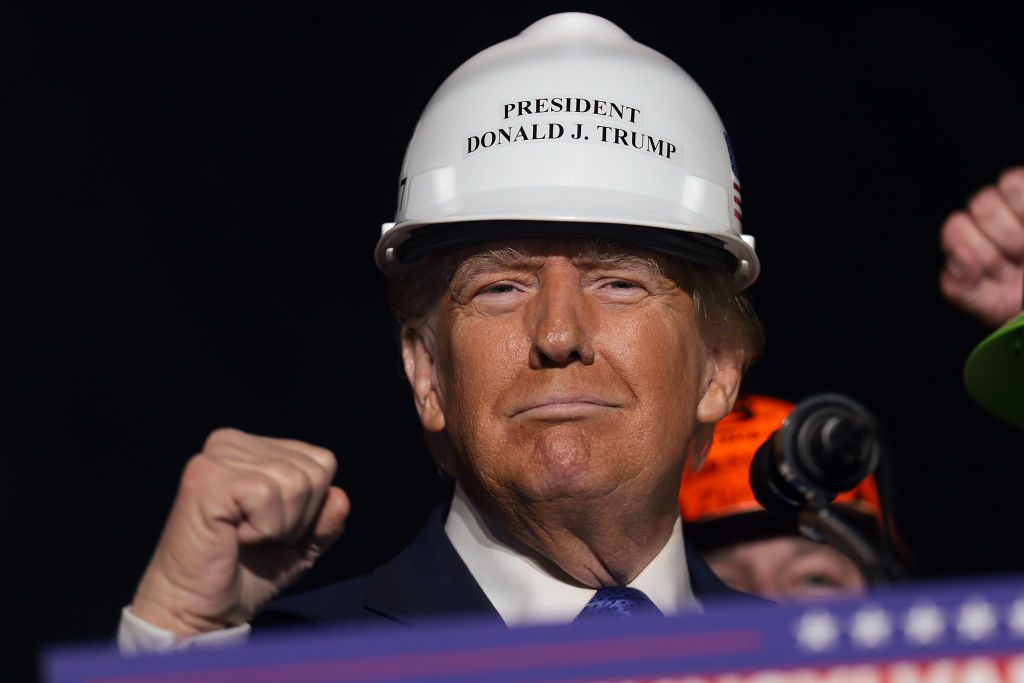Last month, President Trump stripped nearly half a million federal employees of their collective bargaining rights. That followed a pair of White House executive orders directing 28 agencies in total to set aside agreements with organised labour; all told, some one million government workers are set to lose their union contracts, according to The New York Times.
The move represents an intensification of a long-running tug-of-war between Republican leaders and the unionised federal bureaucracy they’ve long seen as hostile to the GOP. Much more notable is the self-declared basis for Trump’s decision: he’s doing it, he says, to protect “national security”.
There is a rich irony here. In the immediate postwar decades, “national security” rhetoric was used to strengthen the midcentury New Deal order, America’s answer to the tradition of social and Christian democracy in Europe. From infrastructure and energy development to labour and civil rights, the New Dealers believed that advancing a social-democratic model was impossible in America — unless it was pegged to national security.
This was as true for Republican New Deal presidents such as Dwight Eisenhower and Richard Nixon as it was for Democratic ones including John F. Kennedy and Lyndon B. Johnson. In the Fifties, for example, Eisenhower was determined to construct an interstate highway system. Yet he couldn’t get his bill, the Interstate Highways Act, through Congress — that is, until he rechristened the bill as the National Interstate and Defense Highways Act.
The expenses of a highway system facilitating interstate commerce weren’t worth the candle. But add the possibility of transporting tanks across the homeland amid a hypothetical Soviet invasion, and suddenly lawmakers could see the sense in the project. The Communist invasion never actually came; the interstate highway system proved enormously beneficial, all the same.
After Nixon, however, Republicans came increasingly to distrust the New Deal’s tripartite regime of cooperation and counterbalancing power between the state, capital, and labour. By the Eighties, small-government Jeffersonianism — the founding ethos of the Democratic Party in the early republic — came to dominate the GOP. Abolishing the Department of Education and firing federal workers en masse formed perennial planks of the Republican offering — things the party always pledged but never delivered. Meanwhile, the national-security state continued to grow under presidents from both parties.
In his second term, however, Trump is finally delivering real blows to the bureaucracy in his determination to reassert presidential control. His attacks on federal-employee unions should be understood in this context.
It’s worth recalling that Franklin D. Roosevelt himself, though a champion of organised labour in the private economy, was resolutely opposed to trade unionism among public employees. “All Government employees,” FDR wrote in a famous 1937 letter, “should realize that the process of collective bargaining, as usually understood, cannot be transplanted into the public service. It has its distinct and insurmountable limitations when applied to public personnel management.”
In the case of government employees, he argued, the employer is really the US taxpayer and public, giving rise to a much different relationship compared to the one between workers and bosses in the private economy. What’s more, Roosevelt considered strikes and other industrial action by public servants simply “unthinkable and intolerable”.
The modern labour movement rejects this line of thinking, of course, but it remains to be seen whether it can overcome Trump’s determination, not to mention the powerful American logic of “national security”.











Join the discussion
Join like minded readers that support our journalism by becoming a paid subscriber
To join the discussion in the comments, become a paid subscriber.
Join like minded readers that support our journalism, read unlimited articles and enjoy other subscriber-only benefits.
Subscribe